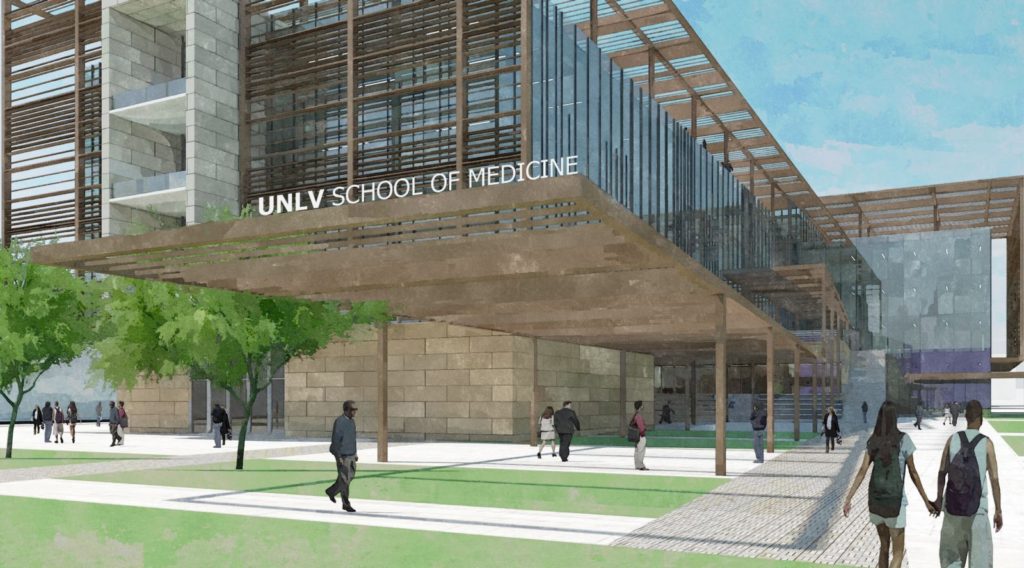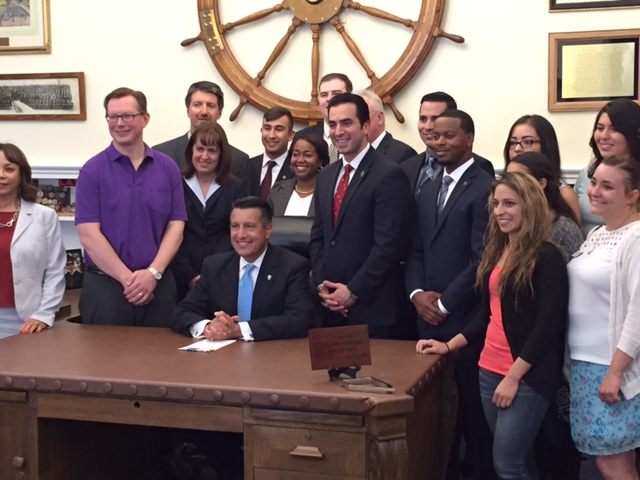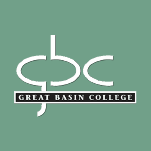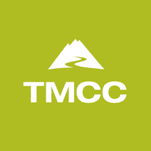
2015 Legislative Summary
Executive Summary
The Nevada System of Higher Education 2015 Legislative Report is a summary of legislative activity from the 78th session of the Nevada State Legislature. It is intended to provide an overview of legislative and budgetary impacts to NSHE and its eight institutions.
This report provides summaries and links to legislation that was successfully approved and signed into law by the Governor. You will find information within the following categories:
Significant strides were made for our state during the 78th session and for NSHE as well. The budget approved by the legislature and signed into law by the Governor included a 12.78% increase over general fund operating appropriations from last biennium, as well as $5m in new financial aid funds for the creation of the Silver State Opportunity Grant. The critical role of higher education in supporting the New Nevada was acknowledged in many respects, most notably in the areas of financial aid, economic development, supporting veterans, expansion of health care and strengthening our relationship with the K-12 public education system.
Gains made this session for NSHE were achieved due to a clear and focused system-oriented agenda adopted by the Board of Regents which was effectively advocated throughout the session by members of the NSHE Board of Regents, presidents, faculty, staff, students and our partners in business throughout the State. Their visits to the legislature, presence during Education Day, testimony during hearings and emails to legislators truly made a difference.
NSHE efforts throughout the legislative session were spearheaded by Dr. Constance Brooks, Vice Chancellor of Government & Community Affairs, and Mr. Omar Saucedo, Manager of Government Affairs and Diversity Initiatives, assisted by government affairs personnel from the NSHE campuses.
We are deeply grateful for the support and confidence of the Governor and Nevada Legislature. The Nevada System of Higher Education is proud to be a partner in the continued growth, development and diversification of the New Nevada.
Daniel J. Klaich
Chancellor
June 2015
Snapshot of the 78th Session
78th Regular Session days
120
2015 Bill Draft Requests
1,294
Total legislative bills
1,013
Signed into law by Governor
549
Bills vetoed by Governor
7
Number of bills tracked by NSHE
210
Number of bills that became law
84
Number of Legislators
63
Newly elected/appointed freshman legislators
20
Number of legislative committees
20
NSHE Budget Impacts
The Base Budget
| Line Item | NSHE Request 2016 | End of Session as Approved by Legislature / Governor 2016 | NSHE Request 2017 | End of Session as Approved by Legislature / Governor 2017 |
| Furlough restoration, including benefits | $10.27m | $10.27m | $10.27m | $10.27m |
| Professional Merit & Classified Step Increases (1) | $14.19m | $2.13m | $26.73m | $4.05m |
| Change in Weighted Student Credit Hour (WSCH) FY14 over FY12 – Case Load Growth | $12.78m | $12.17m | $12.78m | $12.17m |
| Performance Pool – Formula Budgets | 10% | 15% | 10% | 15% |
Enhancement Request
| Line Item | NSHE Request 2016 | End of Session as Approved by Legislature / Governor 2016 | NSHE Request 2017 | End of Session as Approved by Legislature / Governor 2017 |
| $5 increase per WSCH – reinvest in higher education | $12.88m | $0.00 | $12.88m | $0.00 |
| DRI: Percentage increase in the $5 WSCH applied to DRI formula step percentages | $0.12m | $0.00 | $0.12m | $0.00 |
| Bridge funding for GBC and WNC (2) | $2.60m | $2.35m | $2.60m | $2.35m |
| Bridge funding for DRI | $0.35 | $0.48 | $0.35 | $0.48 |
| UNLV Boyd Law School | $1.50 | $1.50 | $1.50 | $1.50 |
Public Medical Education Benefits
| Line Item | NSHE Request 2016 | End of Session as Approved by Legislature / Governor 2016 | NSHE Request 2017 | End of Session as Approved by Legislature / Governor 2017 |
| UNLV Medical School Start-Up Funds | $7.10m | $7.10m | $19.57m | $19.57m |
| UNSOM Undergraduate Medical Education Expansion & ECHO | $1.51m | $1.51m | $3.57m | $3.57m |
| Residency and Fellowship Expansion (GME) (3) | $2.43m | $5.00m | $7.45m | $5.00m |
| One-Time Appropriation for Medical Education Expansion | $0.58m | $0.58m | $0.73m | $0.73m |
Fiscal Impacts – Other State Budgets and Interim Activity
| Line Item | NSHE Request 2016 | End of Session as Approved by Legislature / Governor 2016 | NSHE Request 2017 | End of Session as Approved by Legislature / Governor 2017 |
| Knowledge Fund | $10.0m | $9.00m | $5.00 | |
| Workforce Development Fund | $6.00m | $0.0 | $0.0 | |
| STEM Workforce Challenge Grant Program (4) | $3.50m | see note | see note | |
| Silver State Opportunity Grant | $5.00m | $2.50m | $2.50m | |
| Enhance Millennium Scholarship funding to cover 15 credits (5) | $5.00m to $6.50m | $5.00 to $6.50 | $5.00 to $6.50 | |
| College and Career Readiness (NV Department of Education) | $3.00 | $3.00 |
Legislative Initiatives
| Line Item | End of Session as Approved by Legislature / Governor 2016 | End of Session as Approved by Legislature / Governor 2017 |
| Employee Salary Adjustment FY 16=1% & FY 17=2% NSHE Professional and Classified staff | $4.76m | $14.41m |
| UNLV International Center for Excellence in Gaming Regulation | $0.50m | $0.50m |
| Teach Nevada Scholarship Program (SB 511) | $2.50m | $2.50m |
Notes
(1) Funded classified step only; professional merit was not funded. Numbers approximate pending final fringe benefit calculation.
(2) GBC funded at FY 16=$1.5 & FY 17=$1.5 (as requested by NSHE); WNC funded at FY 16=$1.1 & FY 17=$850K (as requested by NSHE).
(3) This specific NSHE request was not funded but a similar initiative was funded as a Special Appropriation in the Governor’s Office. NSHE programs are eligible to participate.
(4) This specific request was not funded, but a similar initiative in the Governor’s Office of Science, Innovation & Technology was approved and funded.
(5) Funded through the Millennium Scholarship Trust Fund (SB 128).
Assemby Bills
AB 489
For fiscal year 2016, the base salary will increase by one percent ($4.76 million) for classified and professional employees effective on July 1, 2015, and by two percent ($14.4 million) effective on July 1, 2016 in fiscal year 2017.

Appropriated:
UNLV School of Medicine: $5.8 million in FY 16 and $12.4 million in FY 17
UNSOM Graduate Medical Education: $1.8 million in FY 16 and $1.99 million in FY 17
Bridge funding for GBC: $1.5 million in FY 16 and $1.5 million in FY 17; for WNC: $1.1 million in FY 16 and $850,000 in FY 17, for DRI: $477K in FY 16 and $477K in FY 17
SB 227 Silver State Opportunity Grant (need-based financial aid): $2.5 million in FY 16 and $2.5 million in FY 17.
NSHE Capital Improvement Budget Impacts
AB 451
Authorizes the dissolution and enlarges the boundaries of authority of the University of Nevada, Las Vegas, Campus Improvement Authority Board (CIAB) originally approved by the Legislature pursuant to Assembly Bill 335 of the 2013 Session. The bill extends the date by which the Authority must conclude its business by two years, from September 30, 2015, to September 30, 2017, and changes the authority area to include all parcels of property located not more than 1.5 miles of the current boundary, as well as proscribing for the CIAB meetings to be conducted at Clark County in lieu of UNLV.
This bill was approved by the Governor June 5, 2015 and is effective on June 5, 2015.
AB 491
Allocates $24.4m in funds for the UNLV hotel college, totaling approximately 50% of the construction cost with the remaining coming from donor funds, as well as funding for the ongoing NSHE Statewide deferred maintenance program ($15m).
Economic Development
AB 239
Provides comprehensive regulations for the operators of unmanned aerial vehicles (UAVs) within the state of Nevada. In particular, the bill provides for criminal and civil penalties, and requires the Department of Public Safety, to the extent that money is available, to establish and maintain a registry of UAVs that are operated by public agencies in this State and requires the Department to adopt regulations prescribing the public purposes for which a public agency may operate a UAV. The Department is required to prepare and submit to the Director of the Legislative Counsel Bureau a report outlining activities of public agencies regarding the operation of UAVs in the State.
This bill was approved by the Governor on June 2, 2015 and became effective on June 2, 2015, for the purpose of adopting regulations and performing any other preparatory administrative tasks necessary to carry out the provisions of this act and on October 1, 2015, for all other purposes.
AB 399
Requires the Office of Economic Development, in consultation with the College of Southern Nevada, the Nevada Small Business Development Center, and other interested parties, to develop, create, and oversee a pilot program designed to stimulate Nevada’s economy. The program is to be designed to provide assistance to businesses that are already located and operating in Nevada, rather than to recruit businesses from other states to relocate to Nevada. The bill provides for the employment of a geographic information specialist (GIS) position to be hired and located in Clark County who can provide the data necessary to help small businesses in the area.
This bill was approved by the Governor June 9, 2015 for the purpose of adopting regulations and performing any other preparatory administrative tasks necessary to carry out the provisions of this act and on July 1, 2015, for all other purposes.
Education
AB 150
Extends student eligibility for the Governor Guinn Millennium Scholarship (MS) to students who do not meet the minimum high school grade point average requirement but who receive a test score on a college entrance examination that meets the approved minimum score established by the Board of Regents.
This bill was approved by the Governor on May 27, 2015 and becomes effective on July 1, 2015.
AB 221
Revises provisions governing the collection, maintenance, use, and security of data collected concerning public school pupils. The bill also adds related reporting requirements for school districts, charter schools, the university school for the profoundly gifted, and the State Department of Education. This bill does not interfere with the Statewide Longitudinal Data Systems (SLDS) project between NSHE and school districts.
This bill was approved by the Governor on June 9, 2015 and becomes effective on July 1, 2015.
AB 485
Creates the Office of Science, Innovation and Technology in the Governor’s Office. It provides for the creation and support to the Advisory Council on Science, Technology, Engineering and Mathematics (STEM); and administering such grants as are provided by legislative appropriation. The bill provides that the STEM Council shall share findings with the Board of Regents for potential development of future programs. Lastly, the bill requires for the recognition of pupils who demonstrate exemplary achievement in STEM fields.
This bill was approved by the Governor June 9, 2015 and sections 4 and 6 of this act became effective on June 9, 2015. All other sections become effective on July 1, 2015.
SB 128
Authorizes for the Governor Guinn Millennium Scholarship (MS) to raise the minimum credit load for MS recipients for community college recipients to 9 credits and raise the maximum credit load to 15 credits, thereby aligning the scholarship program with NSHE’s Student Completion agenda. The cumulative maximum amount of funding that such a student may receive remains unchanged at $10,000.
This bill was approved by the Governor June 5, 2015 and becomes effective on July 1, 2015.

SB 227
Aims at making college more affordable for Nevadans by creating a state funded need-based financial aid program called the Silver State Opportunity Grant. The bill requires the Board of Regents or a designee of the Board to: (1) calculate the maximum amount of the grant which a student is eligible to receive; (2) determine the actual amount each eligible student will receive; and (3) make grants to all eligible students. The money awarded must be used to pay for the cost of education for students. This bill appropriates $5 million from the State General Fund.
This bill was approved by the Governor June 8, 2015 and became effective on June 8, 2015, for the purpose of adopting regulations and performing any other preparatory administrative tasks necessary to carry out the provisions of this act and on July 1, 2015, for all other purposes.
SB 261
Requires a research facility that intends to euthanize dogs or cats to instead offer the animal for adoption through a program of the facility or through an agreement with an animal shelter or animal rescue organization, if the dog or cat is appropriate for adoption. The bill also provides immunity from civil liability for any act or omission relating to the adoption of the dog or cat.
This bill was approved by the Governor on June 2, 2015 and becomes effective on October 1, 2015.
SB 414
Encourages the Board of Regents to enter into a reciprocal agreement with the State of California to authorize waivers of nonresident tuition to residents of California in the Lake Tahoe Basin to attend Western Nevada College.
This bill approved by the Governor June 5, 2015 and is effective June 5, 2015.
SB 511
Creates the Teach Nevada Scholarship Program and incentives for new teachers in certain schools. The bill allows universities, colleges or other providers of an alternative licensure program to award scholarships for future teachers and provides for $5,000 bonuses for first-year teachers as a way to combat a teacher shortage.
This bill was approved by the Governor June 8, 2015 and becomes effective on July 1, 2015.
Health and Human Services
SB 172
Prohibits a medical facility or a physician from allowing a person to perform or participate in activities for credit towards a medical degree, unless the person is enrolled in good standing at an accredited medical school. The bill exempts a physician from this prohibition if the activity takes place in a primary care practice that is located in a designated health professional shortage area and is entirely under the supervision of the physician; and the physician is not currently supervising other medical students.
This bill was approved by the Governor on May 30, 2015 and becomes effective on July 1, 2015.
SB 498
Requires an agency that wants to operate or maintain a community health worker to obtain a license from the Division of Public and Behavioral Health. The bill includes a community health worker pool within the definition of facility for the dependent, thereby requiring community health worker pools to obtain a license from the Division of Public and Behavioral Health.
This bill was approved by the Governor June 5, 2015 and is effective June 5, 2015 for the purposes of adopting regulations and performing any other preparatory administrative tasks necessary to carry out the provisions of this act, and on October 1, 2015, for all other purposes.
Public Employees
AB 135
Requires the Division of State Library and Archives, Department of Administration, to develop and conduct a program of education and training concerning the retention and disposition of official State records for the employees of certain state agencies, boards and commissions. Once the schedule for retention is approved, the State can direct NSHE to train its employees regarding the NSHE retention schedule.
This bill was approved by the Governor June 8, 2015 and becomes effective upon passage for the purpose of performing any preparatory administrative tasks necessary to carry out the provisions and on January 1, 2016, for all other purposes.
AB 180
Requires the Public Employees’ Retirement System to use a request for a proposal (RFP) process for audits at least every four years and requires that the same audit firm not be used in consecutive years to conduct those audits.
This bill was approved by the Governor May 13, 2015 and becomes effective on July 1, 2015.
AB 436
Permanently eliminates the practice of longevity payment to state employees. While prior action of the legislature had merely suspended longevity pay funding for the biennium, this action removes longevity pay completely from the Nevada Revised Statutes and such pay will no longer occur.
This bill was approved by the Governor June 9, 2015 and is effective June 9, 2015.
AB 489
For fiscal year 2016, the base salary will increase by one percent ($4.76 million) for classified and professional employees effective on July 1, 2015, and by two percent ($ 14.4 million) effective on July 1, 2016 in fiscal year 2017.
This bill was approved by the Governor June 9, 2015 and becomes effective on July 1, 2015.
SB 472
Revises the date on which certain public employees, State officers, and members of the Legislature become eligible to participate in the Public Employees’ Benefits Program (PEBP). The bill shortens the time frame for certain public employees, State officers, and members of the Legislature to become eligible to participate in PEBP, similar to the existing time frame required for professional employees of NSHE.
This bill was approved by the Governor May 30, 2015 and becomes effective on July 1, 2015.
SB 505
Implements a two month active group insurance assessment holiday. This is different from a premium holiday in that only the monthly assessment that state agencies pay on behalf on their employees are being suspended for May and June, while the employee shares that are being collected will continue during those months, and will not increase as a result.
This bill was approved by the Governor May 6, 2015 and becomes effective upon passage and approval.
RE: Public Employees – Governor’s Executive Budget as Approved by the Legislature
Elimination of Furlough/Unpaid Leave on July 1, 2015 for Professional and Classified Employees:
Salary reductions of 2.3 % and the requirements to take six days of furlough will end effective June 30, 2015.
Classified Step Increases Funded:
As in fiscal year 2015, eligible classified employees will continue to see merit step increases on the pay progression date of the employee during the biennium. Merit step increases are only available to those classified employees that have yet to attain the top step (step ten) associated with the grade of her or his job classification. Such merit step increases are granted only when the last rating of performance is rated as standard or better.
RE: Public Employees – Committee Budget Closing
Retirement Contribution Increase – Required for Professional and Classified Employees
The state will require an additional 1.25% retirement contribution by employees effective July 1, 2015, which will be matched by NSHE for both employees in the defined contribution retirement system (RPA) and those in the Public Employee Retirement System (PERS). The changes to these rates were made as a result of actuarial studies and were enacted to fully fund the PERS program.
Public Employees Benefit Program
PEBP rates will increase on July 1, 2015 and continue through the upcoming 2015-16 plan year. The amount of the increases will depend upon your coverage level, with increases ranging between $2.74 per month for employee only coverage under the Statewide PPO CDHP to $27.80 per month for employee + family coverage under the Statewide HMO plan.
Public Works
AB 106
Eliminates the authority of a public body to include in a contract with a design professional, a provision requiring that the design professional defend the public body in a lawsuit alleging negligence, errors or omissions, recklessness, or intentional misconduct on the part of the design professional that are based upon or arising out of the professional services rendered. If the design professional is determined to be at fault, the design professional shall reimburse the public body for a proportionate share of the attorney fees and costs the public body incurred defending the suit.
This bill was approved by the Governor on May 25, 2015 and is effective on May 25, 2015.
AB 159
Prevents public bodies (including NSHE) from using bid specifications to coerce bidders into using Project Labor Agreements (PLAs). A PLA governs the number of core employees that a non-union contractor may use on the project. This bill provides the use of PLAs strictly as a voluntary matter on the part of the contractor and prevents local governments from discriminating and or favoring contractors with PLAs over those without PLAs.
This bill was approved by the Governor June 9, 2015 and becomes effective on July 1, 2015.
AB 172
Reversed the controversial passage of SB 119 made earlier this session on prevailing wage. SB 119 allowed for the extension of school construction bonds but also specified that school construction wouldn’t be subject to the prevailing wage. A late amendment in this bill again made school construction projects subject to prevailing wage, but at 90 percent of the rate of other public works projects.
This bill was approved by the Governor June 9, 2015 and is effective June 9, 2015.
AB 332
Prevents any public body from entering into the usage of purchasing agency agreements (PAA), i.e. a contract, expressed or implied, for a public work project that provides that any construction materials or goods to be used on the project, be purchased or otherwise supplied by the public body, unless the contractor pays the taxes that otherwise would have been exempted. An amendment clarified that only NRS 341.141 to 341.148 applies to contracts for construction for the NSHE for which 25 percent or more of the costs of the building as a whole are paid from money appropriated by the State or from federal money.
This bill was approved by the Governor June 8, 2015 and becomes effective on July 1, 2015.
SB 119
Originally revising various provisions relating to rollover bonds and excluding payment of prevailing wage requirements for any public works project for a school district, a charter school or NSHE. The provisions relating to eliminating prevailing wage have since been stripped with the passage of A.B. 172.
This bill was approved by the Governor March 6, 2015 and becomes effective upon passage and approval.
State Revenue / Tax Policy
SB 483
Funds the Governor’s Nevada Revenue plan, which fundamentally restructures taxes in Nevada by broadening the base of taxpayers and creating a new revenue stream, embodied in three distinct components (Business License Fee, Modified Business Tax and Commerce Tax). Changes to the existing fixed annual business license fee and quarterly Modified Business Tax (MBT) and a new tax on adjusted gross revenues of businesses with annual revenues of more than $4 million (Commerce Tax) was a compromise of the majority of the tax plans introduced this session. This approach is touted as the fairest and most well balanced approach for the State moving forward.
This bill was approved by the Governor June 9, 2015 and the vast majority of sections become effective on July 1, 2015.
Veterans
AB 76
Requires NSHE to provide biennial reporting to the Legislature concerning students who are veterans. The committee approved two amendments: to allow honorably discharged veterans 5 years to receive free tuition at an NSHE institution rather than 2 years, as well as to require the Board of Regents to report annually.
This bill was approved by the Governor on March 26, 2015 and becomes effective on July 1, 2015.
AB 482
Requires the Director of the Department of Veterans Services to prepare a fiscal report regarding the amount and sources of funding for programs and services to Veterans. In addition, the bill requires the fostering and development of research and policy, the development of fellowship programs and developing models for outreach and engagement of veterans.
This bill was approved by the Governor on June 12, 2015 and becomes effective on July 1, 2015.
Western Interstate Commission on Higher Education (WICHE)
SB 76
Aims to provide a comprehensive update by including states and territories that have been added to the Compact after 1969, cleaning up structural issues and allows for participants seeking education and training in certain medical professions to qualify for loan forgiveness if their practice after graduation serves medically underserved “populations” and “areas.”
This bill was approved by the Governor on May 30, 2015 and becomes effective on July 1, 2015.
SB 195
Moves WICHE from NSHE to the Governor’s Office. The bill additionally authorizes the Governor to employ certain persons to provide an appropriate staff for WICHE. The bill requires the Governor to propose a budget for the Office and to appoint a Director of the Office, who is in the unclassified service of the State, and authorizes the Director to employ any necessary personnel, who are in the classified service of the State.
This bill was approved by the Governor June 5, 2015 and becomes effective on July 1, 2015.








